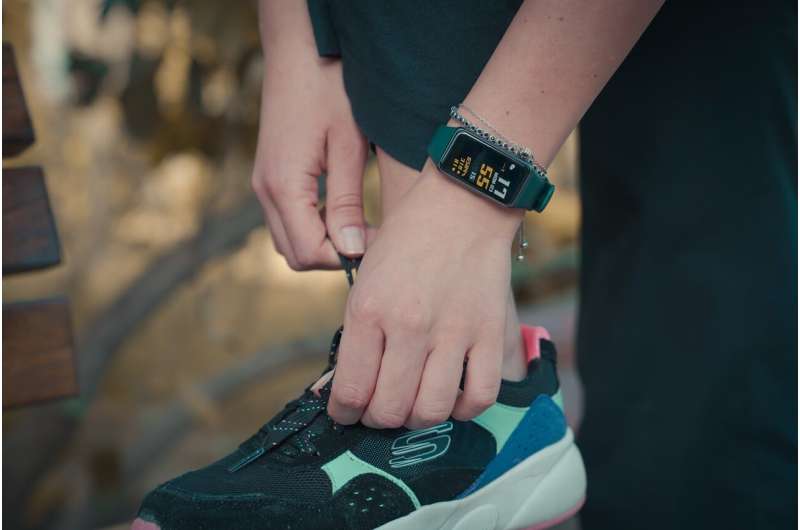This article has been reviewed according to Science X's editorial process and policies. Editors have highlighted the following attributes while ensuring the content's credibility:
fact-checked
peer-reviewed publication
trusted source
proofread
Study finds adults with heart disease less likely to use health tracking apps

Two in five U.S. adults with or at risk for heart disease use smartphones or tablets to monitor their health, a new Yale study finds. But those at highest risk for heart disease are less likely to use technology to track their health goals. The aim of the study was to identify gaps in the adoption of mobile health technologies and potential avenues to mitigate cardiovascular risk factors.
The results were published in the Journal of the American College of Cardiology: Advances ( JACC: Advances).
Research published by the authors earlier this year in JAMA Network Open found that fewer than a quarter of U.S. adults with or at risk for cardiovascular disease (CVD) use wearable devices. However, little is known about the use of smartphones and tablets for monitoring health in the U.S.
To better understand how those affected by CVD use technology to track health, the research team captured nationally representative data from the National Cancer Institute's Health Information National Trends Survey. They investigated demographic distribution and patterns of smart device use among 16,092 survey participants between 2017 and 2020. A total of 10,660 participants had CVD or cardiovascular risk factors, representing over 154 million U.S. adults.
"We found that younger individuals, women, and Black individuals with a higher educational attainment or higher household income were more likely to use their smart devices to track their health goals," said Arya Aminorroaya, a postdoctoral associate in the Cardiovascular Data Science (CarDS) Lab at Yale School of Medicine and the study's co-first author.
The team assessed whether survey participants had ever used a smart device to track health goals, such as losing weight or increasing their daily step count.
They found that though older individuals and men are more likely to develop CVD, they were less likely to own a smart device or use them to monitor their health. Likewise, use of smart devices fell significantly among those with less education or a lower household income, according to the research, a technology gap that could exacerbate existing health disparities and contribute to worse cardiovascular outcomes.
"People can effectively use smart devices to track their health," said Lovedeep Dhingra, MBBS, a postdoctoral associate at the CarDS Lab and a co-first author of the study. "But it's not happening, especially among the highest risk individuals."
Health care providers can be part of the solution for individuals with known CVD by encouraging the use of technology to adopt healthy behaviors, the researchers said.
Rohan Khera, MD, MS, assistant professor of medicine, director of the CarDS Lab, and senior author on the study, highlighted the task ahead.
"In these paired studies, we found that individuals at highest cardiovascular risk were least likely to use wearable devices, such as smartwatches, or use technology on their phones to track and improve their health," said Khera.
"We need to decipher what would enable older and low-income individuals to adopt a healthier lifestyle and achieve better cardiovascular outcomes. While we presume technology update take might help, we need to generate evidence on whether broad adoption of technology is the answer."
More information: Arya Aminorroaya et al, Use of Smart Devices to Track Cardiovascular Health Goals in the United States, JACC: Advances (2023). DOI: 10.1016/j.jacadv.2023.100544





















